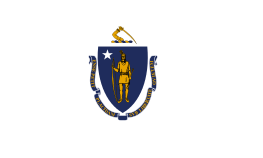James H. Duncan
| James Henry Duncan | |
|---|---|
| Member of the U.S. House of Representatives from Massachusetts's 3rd district | |
| In office March 4, 1849 – March 3, 1853 | |
| Preceded by | Amos Abbott |
| Succeeded by | J. Wiley Edmands |
| Personal details | |
| Born | December 5, 1793 Haverhill, Massachusetts |
| Died | February 8, 1869 (aged 75) Haverhill, Massachusetts |
| Political party | Whig |
James Henry Duncan (December 5, 1793 – February 8, 1869) was a member of the United States House of Representatives from Massachusetts.
Born in Haverhill, Massachusetts, he attended Phillips Exeter Academy, and graduated from Harvard University in 1812. He studied law and was admitted to the bar in 1815 and commenced practice in Haverhill.
He was an active militia officer, and attained the rank of colonel. He was president of the Essex Agricultural Society, and member of the State House of Representatives in 1827, 1837, 1838, and again in 1857. He served in the State senate from 1828 to 1831. He was a delegate to the Whig National Convention at Harrisburg, Pennsylvania in 1839. He was appointed Commissioner-in-Bankruptcy in 1841.
He was elected as a Whig to the Thirty-first and Thirty-second Congresses (March 4, 1849 – March 3, 1853).
Following his political career he was engaged in the real-estate business. He died in Haverhill, aged 75, and was interred in Linwood Cemetery. His daughter Margaret Duncan married Stephen Henry Phillips on October 3, 1871.[1]
James H. Duncan is the namesake of Duncan, Illinois.[2]
References
- ↑ Robert S. Rantoul (1888). Duane Hamilton Hurd, ed. History of Essex County, Massachusetts: with Biographical Sketches of Many of its Pioneers and Prominent Men 1 (1). Philadelphia: J.W. Lewis & Company. pp. xlviii – li.
- ↑ Gannett, Henry (1905). The Origin of Certain Place Names in the United States. Govt. Print. Off. p. 110.
External links
| United States House of Representatives | ||
|---|---|---|
| Preceded by Amos Abbott |
Member of the U.S. House of Representatives from Massachusetts's 3rd congressional district March 4, 1849 – March 3, 1853 |
Succeeded by J. Wiley Edmands |
|

